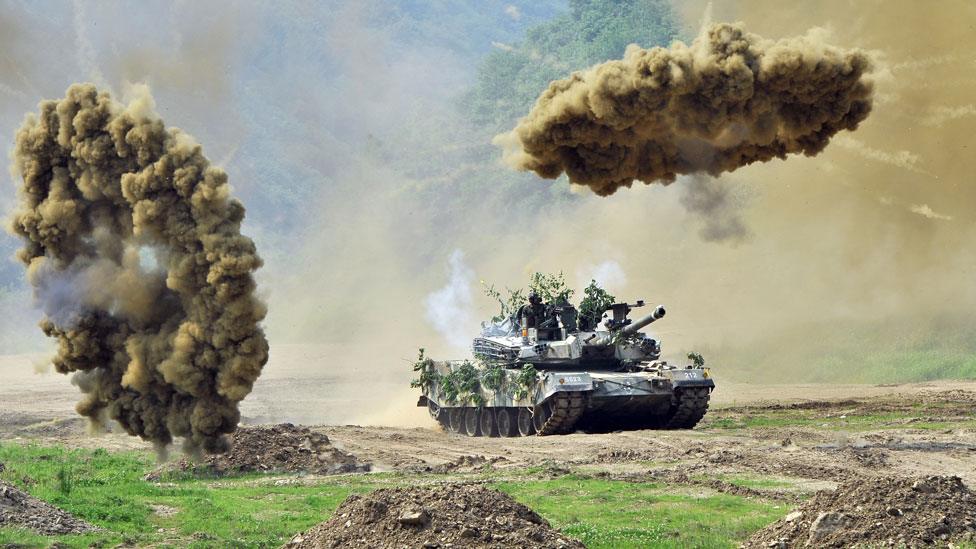US election: South Americans uncertain about future
- Published
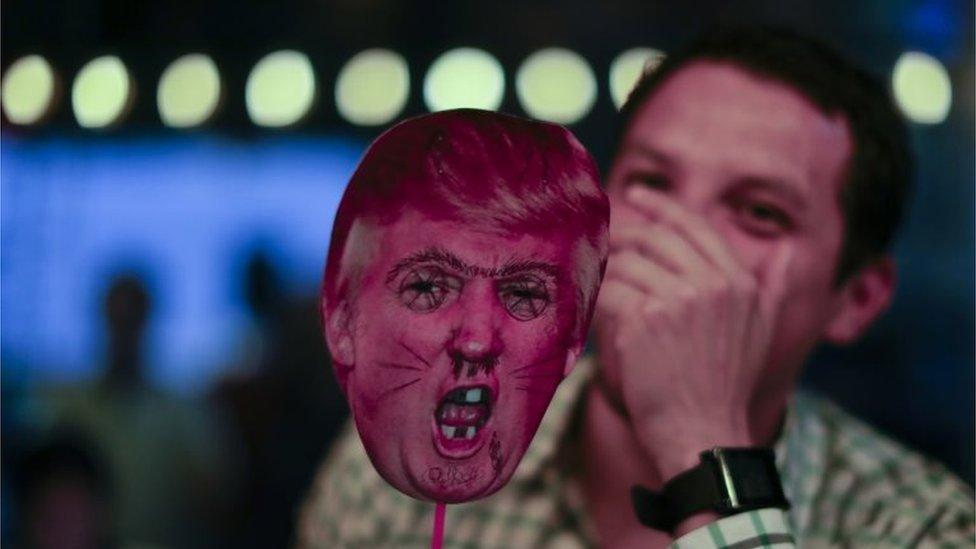
At an election night party in Buenos Aires, one man showed her dislike of the winner
US president-elect Donald Trump has received a series of congratulatory messages from South American leaders amidst uncertainty of what his election will mean to the region in terms of policy.
South America barely received any mention from either US presidential candidate during the campaign, leaving analysts and pundits in the region to second guess the future.
Washington is the main trading partner for many nations in South America.
The heads of central banks in countries such as Brazil and Chile had to calm wobbly markets on Wednesday, by saying that authorities were ready to intervene if needed.
Leaders from most nations in the region were in a rush to congratulate the Republican politician, but some of the messages did not seem entirely whole-hearted.
'Can't happen'
Brazil's President Michel Temer sent a congratulatory note to Mr Trump, saying he was looking forward to deepening the friendship between both nations.
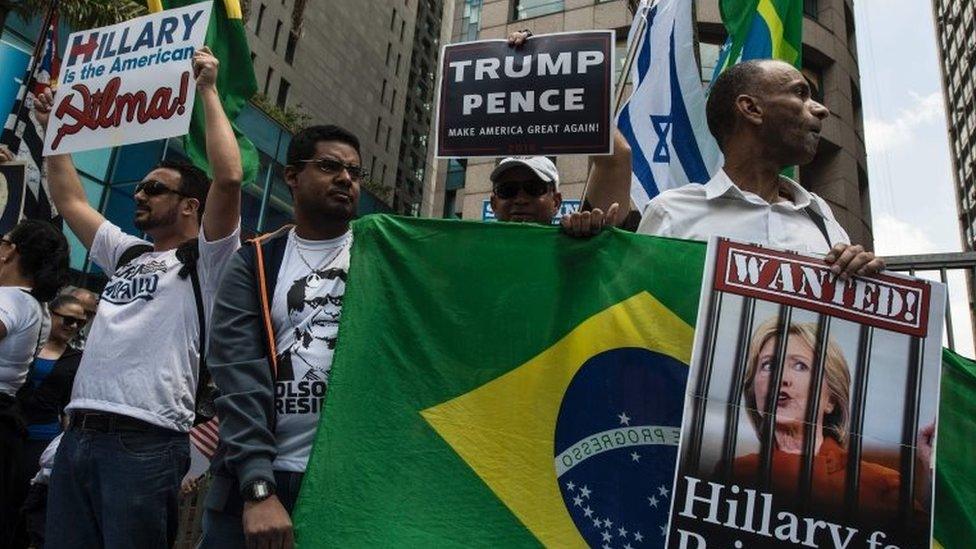
Trump supporters showed their preference at a rally in Sao Paulo recently
But only a few weeks ago, Mr Temer's foreign minister, Jose Serra, scoffed at the prospects of Mr Trump being elected.
"That won't happen. It can't happen," Mr Serra told reporters during a TV interview.
Argentine President Mauricio Macri also expressed his wish to work with Mr Trump for the good of both their people.
Argentine Foreign Minister Susana Malcorra congratulated the Mr Trump but said that "it was a pity not to see a woman as capable [as Hillary Clinton] elected to office".
Chilean leader Michelle Bachelet and Peruvian President Pedro Pablo Kuczynski also sent their good wishes to Mr Trump only days after expressing either criticism of the Republican candidate or a preference for Mrs Clinton.
Hope for the left?
The left-wing leader of Ecuador, Rafael Correa and Nicolas Maduro, has so far remained silent.
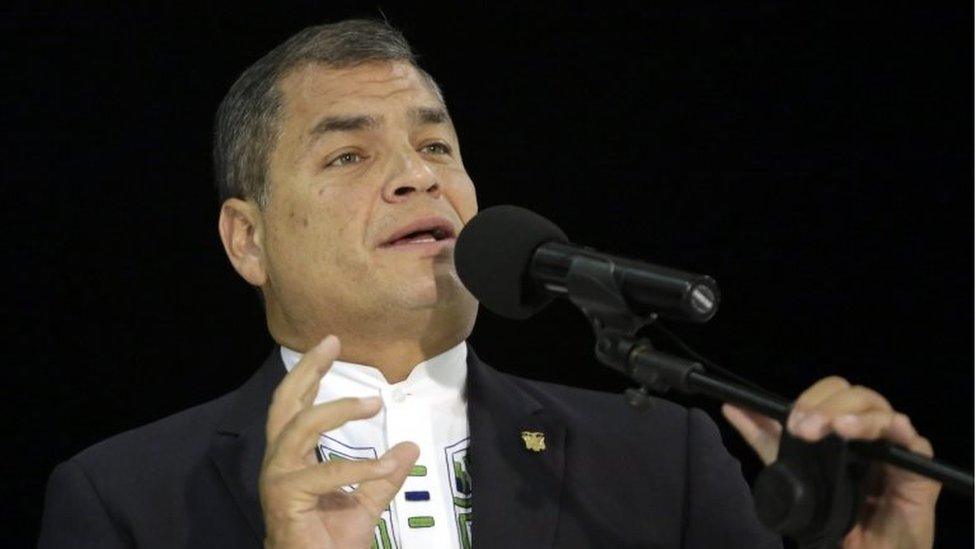
President Correa thinks a Trump presidency could revive the left in opposition
Earlier this year, Mr Correa said that he hoped for the good of the world and of the US that Hillary Clinton would win.
But he conceded that Mr Trump could end up inadvertently uniting and reviving the fractured left in the region.
"He is so basic that this will generate a reaction in Latin America which will build more support for progressive governments," Mr Correa told Venezuela-based broadcaster Telesur.
Bolivia's leftist President Evo Morales congratulated Donald Trump on Twitter and said he hoped to work with the new US president to tackle "racism, sexism and anti-immigration (feelings)".
Venezuela's socialist government, which has in the past accused the US of meddling in its affairs, said it hoped Mr Trump would advance `"respectful bilateral political and diplomatic relations" with respect for each other's internal affairs and without interventions.
Mr Trump's victory also elicited comment from the far-right in the region.
Jair Bolsonaro, a controversial Brazilian Congressman who wants to run for president in 2018, congratulated Americans for choosing Mr Trump who, he said, went against "everything and everyone".
Mr Bolsonaro, who is hugely popular with his supporters, has in the past caused outrage for his homophobic comments and for dedicating a vote he cast to the memory of a colonel accused of human rights abuses.
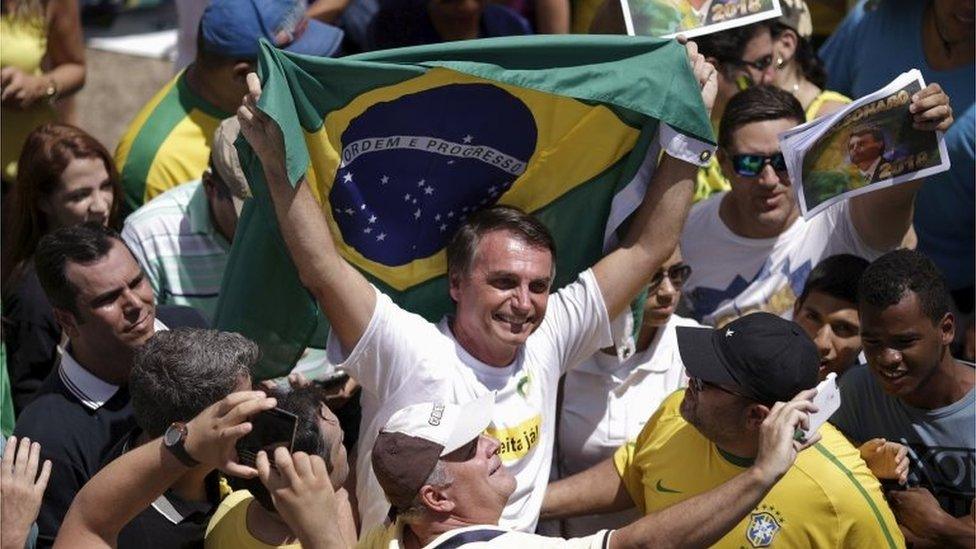
Jair Bolsonaro (holding flag) would like to be "the Brazilian Trump"
Mr Bolsonaro said Brazilians would follow suit two years from now and support his bid for Brazil's top job.
Worries and fears
Normally experts on bilateral relations say that a Democrat in the White House is more likely to affect trade in the region.
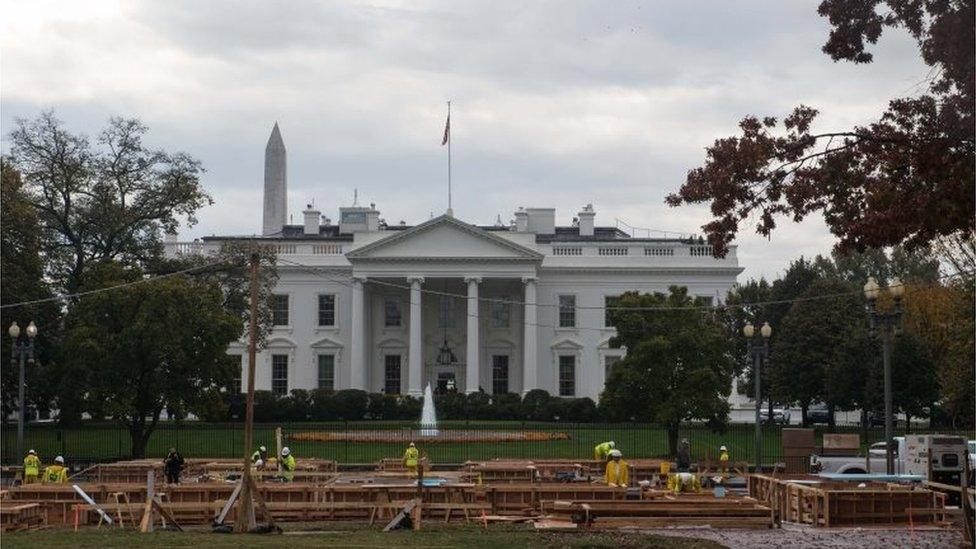
Who sits in the White House has repercussions on trade throughout the Western Hemisphere
They argue that close ties between the US Democratic party and workers' unions usually result in more protectionist policies.
But in this campaign, it was Mr Trump and not Mrs Clinton who was advocating more protectionist policies.
Chile's Foreign Minister Heraldo Munoz said he was concerned about the future of the Trans Pacific Partnership, a trade agreement signed by 12 nations but which still needs to be ratified by national parliaments.
Mr Munoz said that even if President Barack Obama were to push for the deal to be approved by the US Congress before his term ended, Mr Trump could still unilaterally abandon it.
Brazilian farmers are worried that Mr Trump's rise to power could result in more protectionist policies for US agribusiness, putting foreign farmers at a disadvantage.
The director-general of the World Trade Organization, Brazilian diplomat Roberto Azevedo, congratulated Mr Trump on his victory, but urged him to lead US efforts towards free trade.
"It's clear many feel trade isn't working for them. We must address this and ensure trade delivers the widest benefit to the most people," he tweeted.
In the air
There are also concerns about immigration.
President Obama was in negotiation with Brazil to find a way to ease visa restrictions between the two countries.
But as Mr Trump ran on an anti-immigration policy, those talks are now in doubt.
Another point of uncertainty is the future of financial markets.
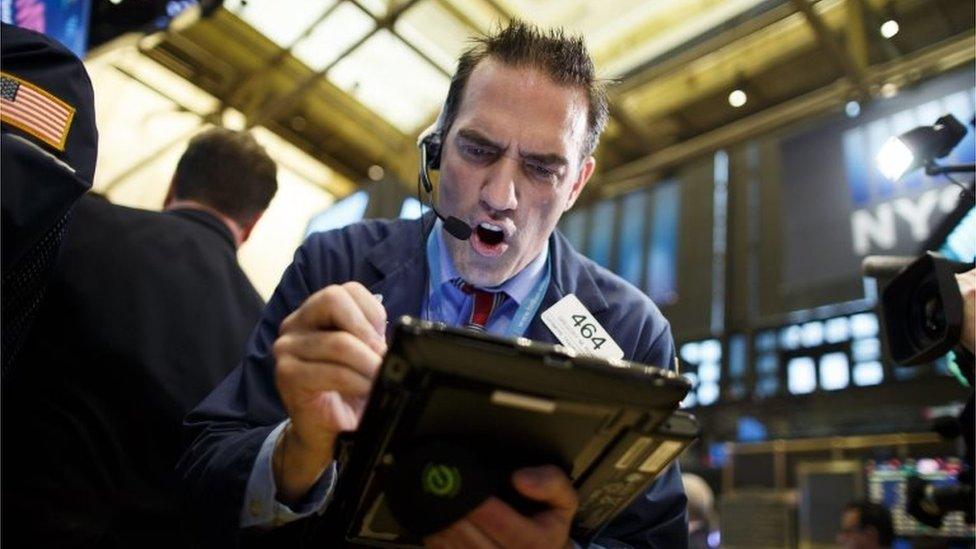
Traders were quick to react to the news of Mr Trump's election win
Many analysts had predicted a hike in US interest rates later this year, which could provoke an outflow of capital from South American markets to the US.
But as Mr Trump has been a fierce critic of Federal Reserve chairwoman Janet Yellen, that move, too, is now in doubt.
- Published9 November 2016
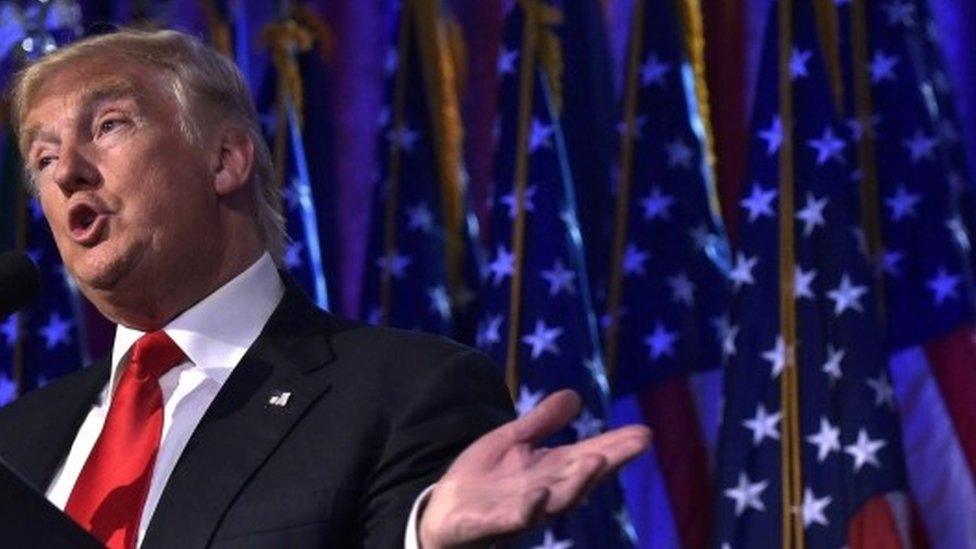
- Published9 November 2016
- Published25 April 2017
